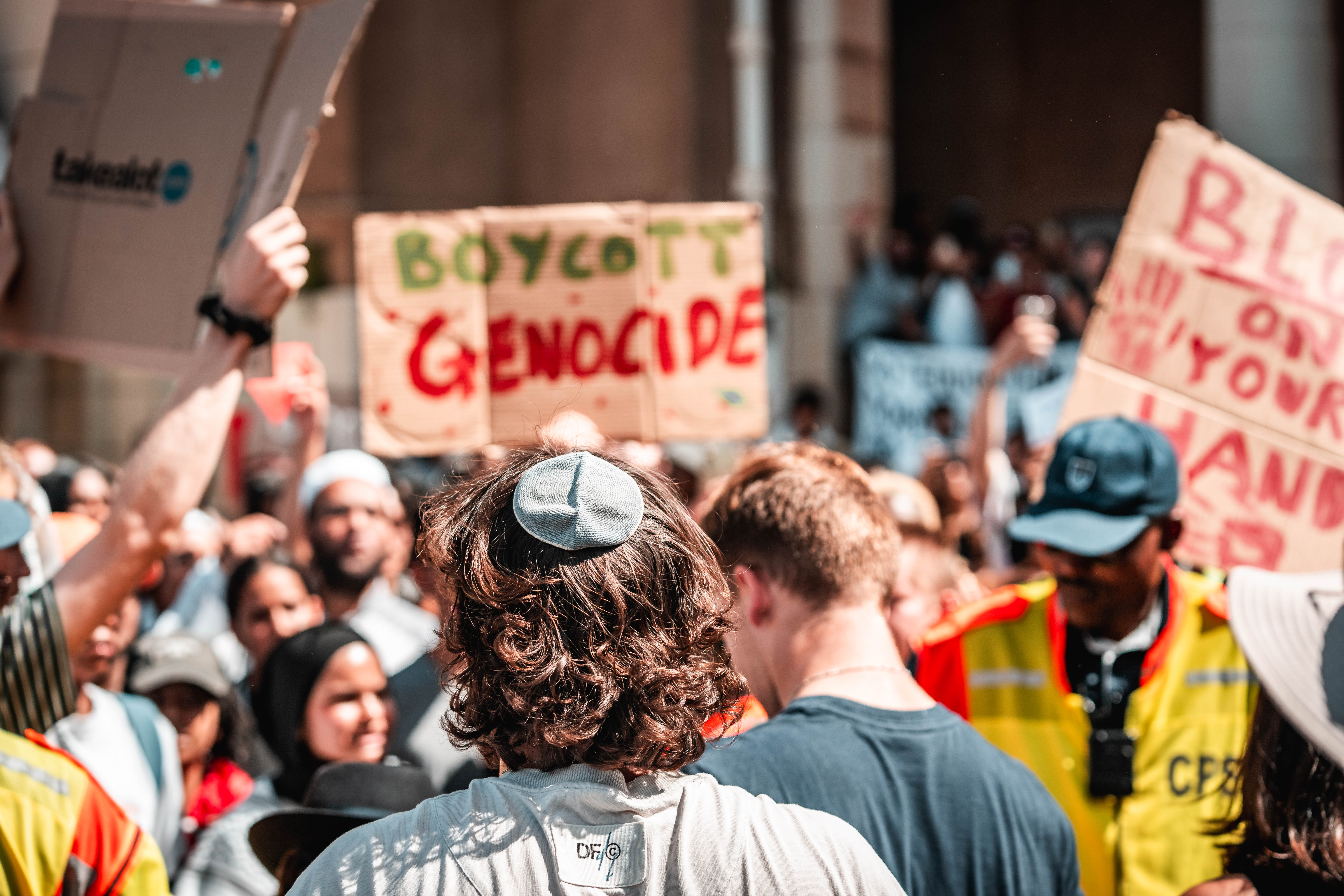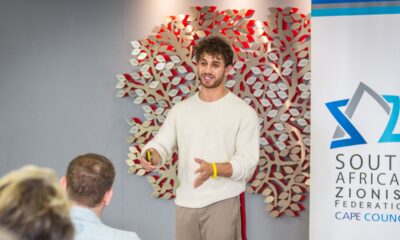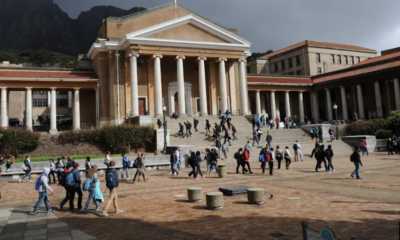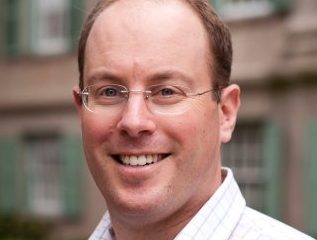
Banner

Hope fights hate at UCT
Ben-Gurion University (BGU) President Professor Daniel Chamovitz says University of Cape Town (UCT) students and staff who want to cut ties with Israeli universities would be shocked to know that 30% to 45% of some Israeli student populations are Arab, way more than the percentages of Arabs living in Israel.
In addition, BGU has a large Bedouin contingent of staff and students, including its vice-president, Sarab Abu-Rabia Queder, the first Bedouin woman in Israel to receive a doctorate and to be promoted to associate professor.
Chamovitz, visiting South Africa from Israel, was speaking at an event titled “Ramifications of UCT resolutions regarding Israel”, hosted by the South African Zionist Federation Cape Council on 20 August. He said while Israeli universities aim to foster connections in diverse societies, universities like UCT want to boycott these advances.
On 7 October, 75 members of the BGU community were murdered, 10 were taken hostage, and many more were made refugees in their own country. Yet the institution continues to work to build bridges between diverse sectors of Israeli society and beyond, Chamovitz said.
A UCT staff member speaking at the event, who the SA Jewish Report chose to keep anonymous for his own security, said he believed there would be negative implications for UCT of anti-Israel resolutions, with an impact on donor funding and grants from countries like America and Germany. “It will become an existential matter for UCT,” he said.
At the same event, a UCT Jewish student, Ruby Kapelushnik, said that during Israeli Apartheid Week earlier this year, a female student had pulled the kippah off the head of a Jewish student and thrown it on the ground, encapsulating the anti-Israel sentiment allowed to flourish at the university over the past few years. However, the way the South African Union of Jewish Students (SAUJS) reacted to the incident was hopeful for Jewish students continuing to attend an institution that has shaped the lives of thousands of Jewish alumni.
Kapelushnik said the incident was caught on camera, and at first SAUJS members were shocked and unsure how to proceed. As things simmered down, they eventually reached out to the female student to try build a connection.
When pulling off the kippah, she said it was because the Jewish student “wasn’t a real Jew, because he’s a Zionist”. However, when engaging with the female student, SAUJS realised she had no understanding of Judaism or the Israeli-Palestinian conflict. It organised for her to attend a tour of the Cape Town Holocaust & Genocide Centre to help her realise that her behaviour was antisemitic and to learn about Jewish history.
Its members then gave her an overview of the conflict, and she responded by saying that she had learnt a lot, and her behaviour and sentiments had been extremely out of line. Kapelushnik said this approach of engaging with individual students and small groups was having a significant impact in pushing back the wave of anti-Israel sentiment that has engulfed the campus.
In another example, SAUJS recently took a diverse group of non-Jewish UCT student leaders to Israel, allowing them to experience the reality of Israel’s diverse society and the impact of 7 October. It also offered a safe space for extensive debate between them and Jewish students. They have now formed a relationship, and SAUJS has since invited students from the tour to Shabbos dinners and parties.
However, Kapelushnik said SAUJS usually took Student Representative Council members to Israel, but this year, they refused to come, fearing the impact on their political careers. In addition, one student who went to Israel had since been punished for it. The funding he was receiving from his department was withdrawn, and he was told it was because he had been to Israel.
She said that from about 9 October, her non-Jewish friends at university had stopped talking to her and making eye contact, cutting her off simply because she was Jewish. Yet, she believes UCT remains a safe space for Jewish students, and there’s room to fight back against discrimination on campus. “I would happily run around with an Israeli flag,” she points out.
She says the radical, terrorist-supporting UCT Palestinian Solidarity Forum (UCT PSF) is small, fractured, and rife with internal politics, with little to no impact on students’ beliefs or actions. This was echoed by the UCT staff member, who said that the South African government and media encouraged radical positions and therefore the UCT PSF wasn’t just a “UCT problem” but a wider concern. He said the group had minimal traction on campus and had alienated some of its supporters.
Banning collaboration between Israeli and South African academics would have little to no impact on Israeli universities, he said, as collaboration with South Africans is a drop in the ocean compared to their work with other nationalities.
The anti-Israel resolutions at UCT reflect current sentiment in South African society, the staff member said, but there are staff members with opinions across the spectrum, with many supporting Israel or collaborating with Israeli researchers.
He said research between UCT and Israeli academics hadn’t yet been cut off, and the university was in “limbo” regarding the matter. However, he said the university’s new vice chancellor, Professor Mosa Moshabela, is a pragmatic and strong leader who will ensure that campus remains a safe and welcoming space for Jewish students. He believes the university doesn’t want Jewish students or staff to leave the institution.
When he saw a UCT resolution referring to Israel’s “Zionist policies”, Chamovitz questioned what was behind such a statement, asking what “Zionist policies” were. He said the term made him think of the Protocols of the Elders of Zion, in which Jews are seen as pulling the strings, and that such a resolution couldn’t be taken seriously when using such a term.
Instead of making such divisive and sinister statements, UCT and Israeli universities could work together to make academia a safe space for all, Chamovitz said. In addition, donors could fund research collaborations between South Africans and Israelis, essentially cancelling resolutions that call for a ban on working together.










